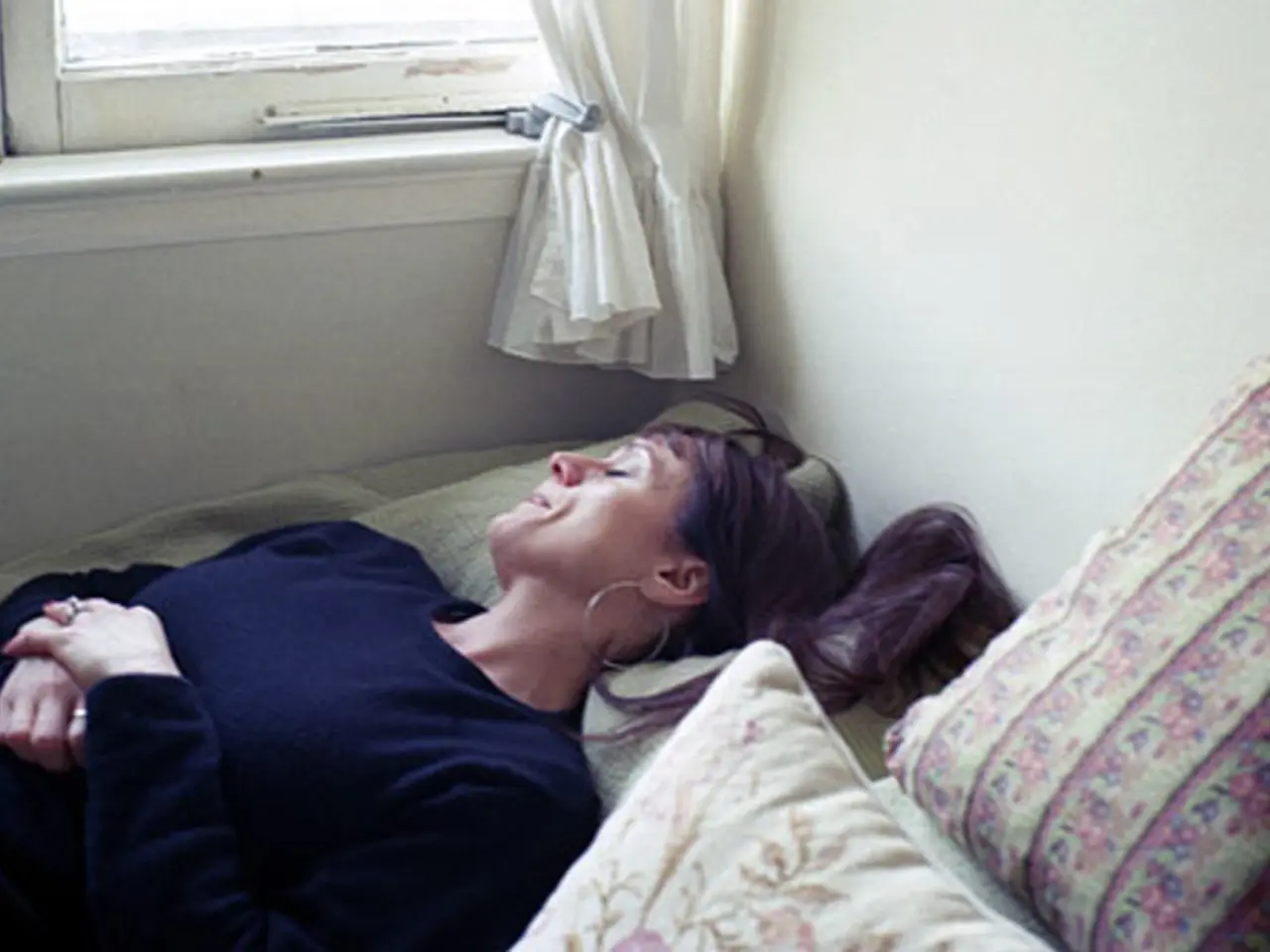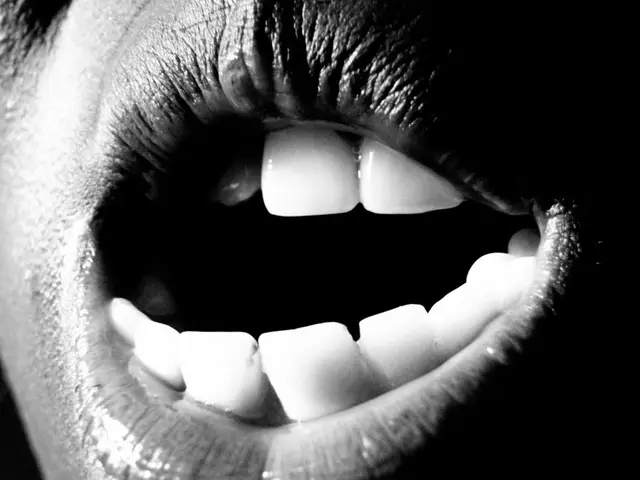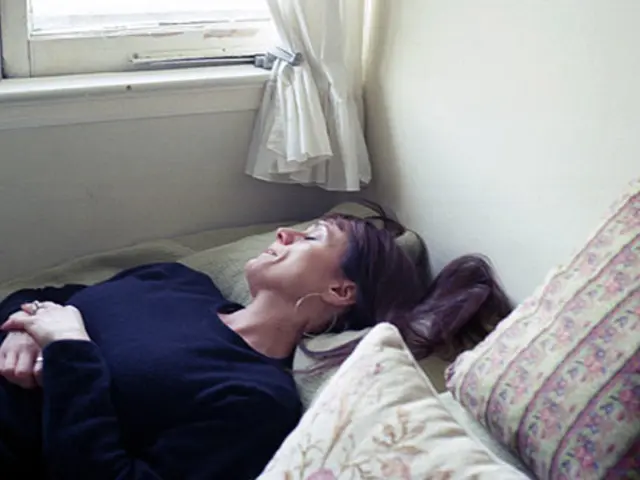Exploring the Association Between Depression and Oversleeping: Illuminating the Link
The link between depression and sleep is intricate, affecting numerous aspects of a person's life, particularly their rest patterns. It's not uncommon for those dealing with depression to experience excessive sleep, which can significantly impact their daily functioning and overall well-being.
The Science Behind Depression and Sleep
The brain's complex neurochemistry lies at the heart of this connection. Depression is marked by imbalances in neurotransmitters like serotonin, norepinephrine, and dopamine. These chemicals play a pivotal role in regulating mood, energy levels, and sleep-wake cycles.
Depression disrupts the body's natural circadian rhythm, the biological clock that governs various physiological processes, including the sleep-wake cycle. In individuals with depression, this rhythm can become disrupted, leading to irregular sleep patterns and struggle to stay awake during the day.
Melatonin and serotonin, neurotransmitters crucial for sleep regulation, are often affected by depression. Melatonin, dubbed the "sleep hormone," helps regulate the sleep-wake cycle, and its production and secretion may be altered in depression, contributing to sleep disturbances. Similarly, serotonin, which affects mood and sleep, is commonly imbalanced in people battling depression.
Depression indeed makes you feel tired and increases the need for sleep, partly due to the biological factors above, as well as the emotional and physical toll depression takes. The persistent low mood, negative thoughts, and reduced energy levels lead to increased fatigue and a desire for sleep.
Common Sleep Patterns in Depression
Depression can manifest in various sleep disturbances, and hypersomnia – excessive sleepiness – is one of the most prevalent. People experiencing hypersomnia tend to sleep for extended periods, often up to 10-12 hours or more, yet still feel unrefreshed upon waking.
On the other hand, some individuals with depression may suffer from insomnia, which is characterized by difficulty falling or staying asleep. This puzzling sleep pattern showcases the complex nature of depression's impact on sleep.
Irregular sleep-wake cycles, late-night sleep and extended afternoon naps, are also common in depression, disrupting daily routines and social obligations.
Daytime fatigue and frequent napping are other hallmarks of depression-related sleep disturbances. Many people with depression feel exhausted during the day, leading to multiple naps that can further disrupt nighttime sleep patterns.
Reasons Why People with Depression Sleep So Much
There are several reasons why individuals with depression may experience excessive sleep:
- Escape from emotional pain: By sleeping, individuals may seek to escape their psychological distress temporarily.
- Physical exhaustion: The mental burden of depression can be physically draining, leading to increased fatigue and a greater need for sleep.
- Lack of motivation: Depression often saps motivation and interest in daily activities. This lack of engagement can make sleep seem more appealing as an alternative to facing the day.
- Changes in energy levels and metabolism: Depression can affect the body's energy regulation and metabolism, leading to increased feelings of tiredness and a desire for sleep.
The Impact of Excessive Sleep on Depression
Although sleep may offer temporary respite, excessive sleep can worsen depression symptoms over time. Sleeping too much can result in a vicious cycle where excessive sleep leads to feelings of lethargy, low mood, and an increased desire to sleep, deepening the depression.
Excessive sleep can also lead to social isolation and disrupted daily routines and responsibilities, potentially causing problems at work, school, or in personal relationships, further compounding the effects of depression. Additionally, prolonged periods of inactivity can increase the risk of obesity, cardiovascular problems, and other health issues, further impacting mental health and overall well-being.
Managing Sleep in Depression: Treatment and Coping Strategies
Addressing sleep issues is essential for effective depression management. Strategies to help manage sleep patterns in people with depression include:
- Sleep hygiene: Establishing good sleep habits, such as maintaining a consistent sleep schedule, creating a relaxing bedtime routine, and ensuring a comfortable sleep environment, is crucial.
- Cognitive Behavioral Therapy for Insomnia (CBT-I): This specialized therapy helps individuals identify and change thoughts and behaviors that disrupt sleep.
- Medications: Some antidepressants can treat depression and regulate both mood and sleep patterns.
- Lifestyle changes: Regular exercise, exposure to natural light, and a balanced diet can contribute to better sleep and improved mood.
- Professional help: If excessive sleepiness persists or significantly impacts daily life, professional help is essential. A mental health professional can offer a comprehensive evaluation and create a customized treatment plan.
Ultimately, understanding the complex relationship between depression and sleep is vital for proper depression management. Excessive sleep is a symptom of depression, but it can also exacerbate depressive symptoms if left unchecked. By addressing sleep issues as part of a comprehensive treatment plan, individuals with depression can work towards improved sleep patterns and better mental health.
Remember that recovery from depression is attainable, and seeking help is a sign of strength, not weakness. With the right support, treatment, and coping strategies, individuals can break the cycle of excessive sleep and depression, paving the way for improved well-being and quality of life.
- The intricate link between depression and sleep is primarily due to imbalances in neurotransmitters like serotonin, norepinephrine, and dopamine, which play a significant role in mood, energy levels, and sleep-wake cycles.
- Depression can disrupt the body's natural circadian rhythm, causing disruptions in sleep patterns and making it challenging for individuals to stay awake during the day.
- Hypersomnia, or excessive sleepiness, is a common sleep disturbance in depression, characterized by extended sleep periods and feeling unrefreshed upon waking.
- Insomnia, on the other hand, is marked by difficulty falling or staying asleep, demonstrating the complex nature of depression's impact on sleep.
- Excessive sleep can worsen depression symptoms over time, leading to a vicious cycle of increased desire for sleep, feelings of lethargy, and further depression.
- Managing sleep in depression requires a combination of good sleep hygiene, cognitive behavioral therapy for insomnia, medications, lifestyle changes, and professional help for persistent excessive sleepiness that interferes with daily life.








